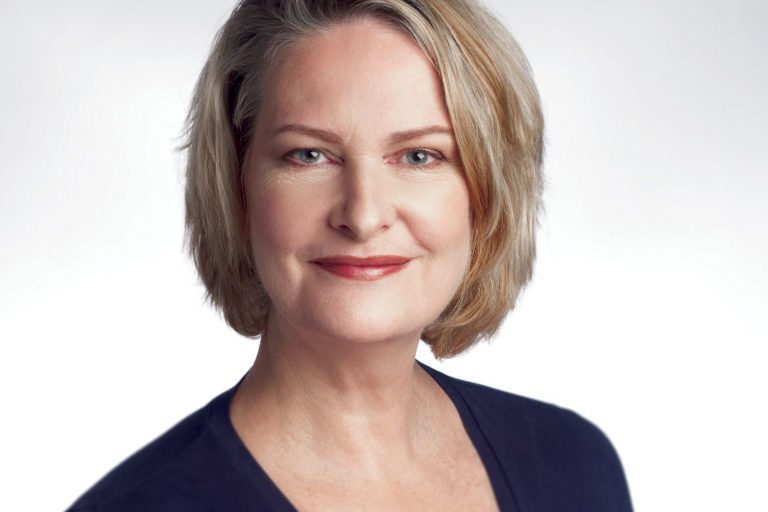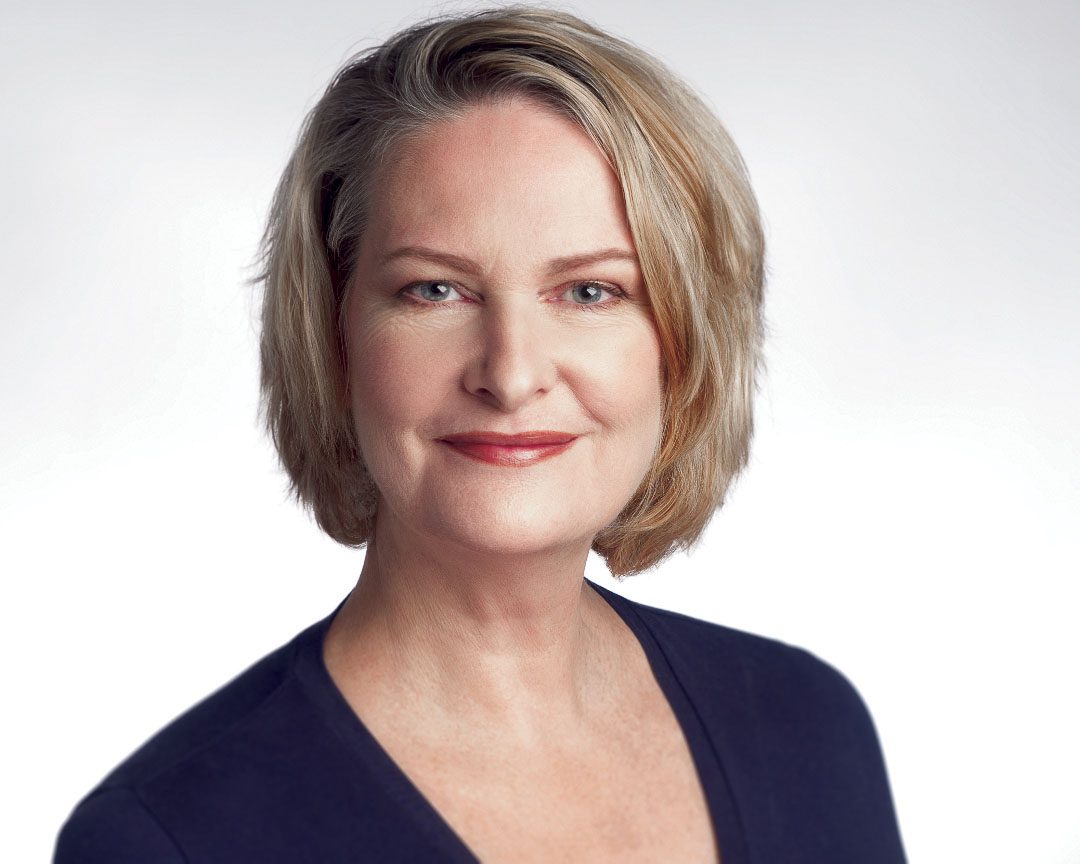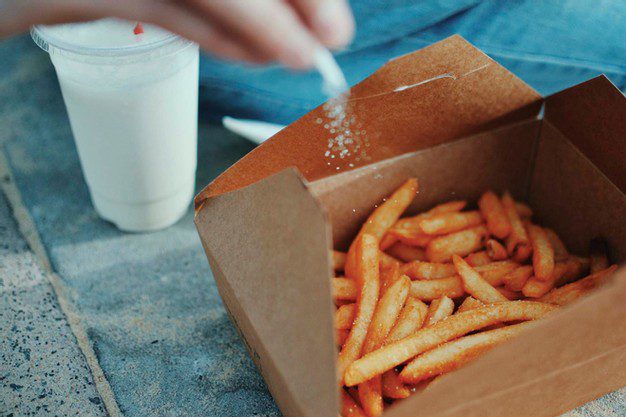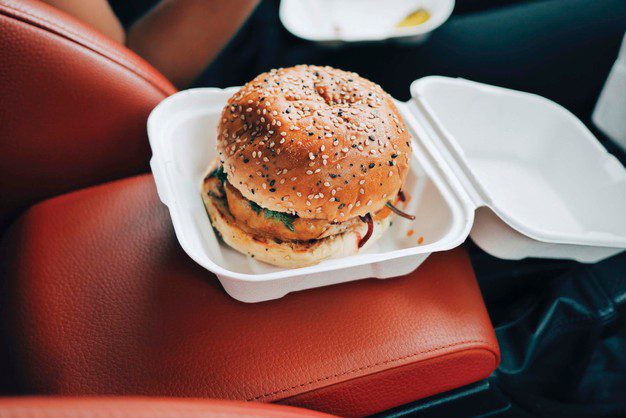FOOD
Mindful eating

WORDS: PHOTOGRAPHY
What is it — and why do most of us not do it?
I was stopped at a set of traffic lights today and I looked across at the car next to me and saw the driver eating a burger. I could see it was a Maccas Quarter Pounder I was that close — and she was really chowing down.
Then the incongruity of eating and driving at the same time hit me. Another strike to the ‘fast food’ industry: ‘drive-thru’ — which has completely normalised something that, for good reason, was not normal 30-plus years ago.
Today, we’re racing around getting kids to school and activities, rushing to meetings, throwing back a soggy sandwich at our desk, driving in peak hour, too tired to cook…
Food has become an inconvenience — unless it is convenient. We want, and can access, anything we like and get it delivered Uber fast! Or, like the lady at the red light, we eat on the run (or in her case drive).
From a health perspective, we are simply not designed to do an ‘active’ thing such as driving at the same time as a ‘passive’ thing such as eating. Each of these activities call on two different ‘players’ in our central nervous system — and these two do not play well together. In fact, it is a physical impossibility for them to operate optimally at the same time — a little like trying to keep your eyes open when you sneeze! Consequently, we wonder why we are stressed (Player A) and have digestive issues such as bloating and heartburn (Player B).
We cannot possibly eat mindfully and drive at the same time. Mindless eating or mindless driving — you choose, but both have consequences. One may be swifter and more catastrophic than the other, but there’s a cost.
Food throughout the world is historically and culturally significant and serves to bring people and families together. Our ancestors used to sit on logs or rocks around the community fire to eat and discuss the hunt or where they would forage the next day.
Later, we sat around tables and said grace (as in being grateful for our food) while we chatted as a family about our respective days. Now, we’re at restaurants on our phones or talking, or we eat on our lap in front of the TV and before we know it, the plate is empty.
What about when we’re eating alone or on-the-go? What are our food choices — and motives? What habits, learnt behaviours from our childhood, and guilty feelings do we eat through a filter of?
Mindful eating comes from early Buddhist teachings. It is eating when we are hungry. It is being in the moment, sitting at a table with a plate or bowl of delicious food that we enjoy for the nourishment it provides, for its freshness, flavour, and beauty. We are thankful for the food and the energy it provides. We chew it, slowly, to activate our digestive enzymes to start the process of nutrient extraction, digestion, and eventually waste elimination.
Mindful eating is stopping before we are full.
Mindful eating is choosing foods that nourish us — that are ‘energetically’ fresh and vibrant rather than processed and energetically empty.
What do I mean by the ‘energetic’ quality of food? Take three burgers: one from the local fish and chip joint, one from Maccas, and one you make at home. Which ‘tastes’ better? They’re all burgers after all, so they should taste the same, right?
An apple picked straight off the tree or one that has been sitting in cold storage at Coles? You can taste the energetic difference when something is fresh (a lot of which we refer to simply as flavour).
Often our relationship with food determines how successful (or not) we are with weight-loss programs or ‘diets’. Eating mindlessly removes choice — and control. Eating mindfully gives us more control in what, when, and why we eat, giving us a much better chance of success in losing those extra kilograms.
Tips for mindful eating
-
Think about why you want to eat and what you want to eat.
-
Notice when you want to eat ‘emotionally’ (such as sweet snacking to feel happier or raiding the fridge out of boredom).
-
If you feel you are hungry after 9pm, this may be a ‘sleep’ signal, not an ‘eat’ signal, so ask yourself, ‘Am I hungry or am I tired?’ If you have only eaten an hour or two before, chances are it’s bedtime!
-
Be present and enjoy the preparation of your food — no matter how complex or simple. Often we are rushed, stressed, and see it as a chore. Food should never be a burden.
-
Think about the last time you felt hunger. It is not a bad thing to feel hunger; however, we have been conditioned to believe it is — hence our constant eating to avoid that feeling we associate with being poor or when we were too young to control when we had food, making us feel deprived and unloved.
-
Be aware mindful eating takes practice and commitment — just like any other skill — until it comes easily.
-
Be grateful for the food, and picture it nourishing the cells in your body and providing energy and balance to your life.
-
When you have finished, wait 20 minutes to gauge whether you are satisfied or still hungry before you have seconds — or dessert.
[main copy continues]
In this era of obesity, popping pills for heartburn, mood disorders, insomnia, and digestive and other chronic diseases, we only have to look at what we eat and when and ask ourselves how much of this has to do with more than just food, but also how we eat it?
Does food really ‘satisfy’ us anymore or is it just an inconvenient necessity to fit in between bouts of ‘busyness’?
So next time you are choosing ingredients to make a meal or looking over a menu at a restaurant or sitting down to eat with friends and family, choose to be in the moment with your food — silently appreciate it, relax, breathe, and enjoy. As the French (who truly love their food) say, bon appetit!
Bio breakout
Carla Hanlon is a Gold Coast-based qualified naturopath, with a focus on post-viral and autoimmune conditions, and co-founder of NatPrac Events — a conference management company specialising in running educational events in the natural health space. Find her at
www.carlahanlonnaturopath.com.au or @CarlaNaturopath












